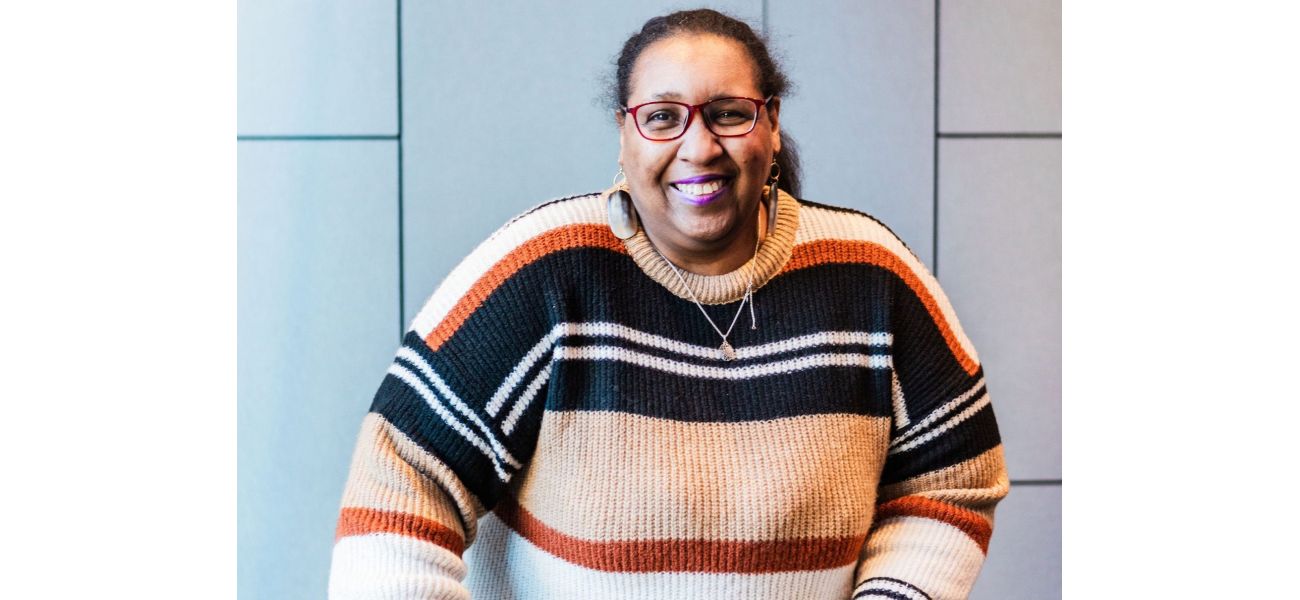A stranger criticized me for having children.
Dealing with schools and medical professionals has been a struggle as a disabled single mom.
October 13th 2024.

When I first found out I was pregnant in my early 20s, I was in complete shock. It was something I had been told would never be possible for me due to my disability. I have spastic quadriplegic cerebral palsy, chronic pain, fatigue, and osteoarthritis, which make it difficult for me to move around and causes joint pain. Throughout my life, doctors had told me that my body wouldn't be able to handle pregnancy. So when I found out I was pregnant with my then-husband, I was both flabbergasted and overjoyed.
As I nursed my newborn baby, Kemi, in the doctor's waiting room, I couldn't help but feel a sense of unease as I noticed a woman staring at us with a judgmental look. Without any provocation, she coldly said to me, "You should never have been allowed to have children. What quality of life will your baby have with a crippled mother?" I was speechless and heartbroken. How could someone be so cruel? I left the surgery in tears, sadly accustomed to people underestimating me because of my disability.
The journey of my pregnancy was difficult, both physically and emotionally. I was sick for most of it and suffered from intense morning sickness and back pain. I was in and out of the hospital due to dehydration. Throughout this time, I felt judged for being a physically disabled pregnant woman. Medical professionals would ask probing questions, implying that they didn't believe I could handle motherhood. I also received odd looks from strangers when they saw my baby bump.
Kemi was born prematurely at 30 weeks and was whisked off to the neonatal intensive care unit. I visited her every single day until she was able to come home with me. Despite the challenges, we managed just fine with occasional help from my parents. However, I always felt like I needed to overcompensate to prove to people that I could manage. I worked full-time as a benefits adviser and commuted from Coventry to Birmingham five days a week while juggling daycare and taking time off when either Kemi or I were sick.
Unfortunately, a few months after Kemi was born, I left my husband. As a disabled single mother, I had to learn to adapt and make things work for us. I used a pillow to help me breastfeed because I couldn't hold her in my left hand, and I spent a lot of time playing with her on the floor to avoid falls. With occasional help from my parents, we managed just fine.
As the years went by, my mobility deteriorated, and I became a caregiver for my parents, including my mother who had Parkinson's. This decline in my health led to me needing surgery on my right knee when Kemi was around eight years old. I needed someone to drop her off at school while I was recovering, and that's when I approached social services for help.
However, I was told that they couldn't provide any assistance and that Kemi was on an "at-risk" list due to concerns raised by her school. I was livid and couldn't understand why she was flagged when she was a healthy and happy child living in an immaculate home. It felt like a two-year battle to get her off the list, and I even had to write to social services and my local MP to complain. Thankfully, she was removed just before her 10th birthday.
Since then, it has been an uphill battle for me as a disabled single mother. I have had to constantly advocate for myself and my daughter, whether it's making schools accessible or just being treated with respect and understanding. I want to feel supported, not judged or unfairly treated.
I believe that there needs to be more awareness and sensitivity surrounding disabilities and motherhood. We can start by challenging taboos and stereotypes, like assuming that disabled people are incapable of having relationships. This is not true at all, and I have had fulfilling relationships throughout my life. Not everyone is judgmental, and I once met a mother who was afraid that her daughter, who also had cerebral palsy, would never have a "normal" life. When I shared my story with her, she was inspired and happy to see that it was possible to have a successful career, relationships, and raise a child despite having a disability.
Today, Kemi is 23 years old, still living at home with me, and studying to be a graphic designer. I continue to do my best to ensure that she has a fulfilling life, and we are both happy for it. Of course, I have unique care needs, but that doesn't make my daughter any less loved or supported. No matter what anyone says, I will always be her loving and capable mother.
As told to James Besanvalle. Share your story with us by emailing James.email. Let's continue to share our experiences and raise awareness for disabled mothers.
As I nursed my newborn baby, Kemi, in the doctor's waiting room, I couldn't help but feel a sense of unease as I noticed a woman staring at us with a judgmental look. Without any provocation, she coldly said to me, "You should never have been allowed to have children. What quality of life will your baby have with a crippled mother?" I was speechless and heartbroken. How could someone be so cruel? I left the surgery in tears, sadly accustomed to people underestimating me because of my disability.
The journey of my pregnancy was difficult, both physically and emotionally. I was sick for most of it and suffered from intense morning sickness and back pain. I was in and out of the hospital due to dehydration. Throughout this time, I felt judged for being a physically disabled pregnant woman. Medical professionals would ask probing questions, implying that they didn't believe I could handle motherhood. I also received odd looks from strangers when they saw my baby bump.
Kemi was born prematurely at 30 weeks and was whisked off to the neonatal intensive care unit. I visited her every single day until she was able to come home with me. Despite the challenges, we managed just fine with occasional help from my parents. However, I always felt like I needed to overcompensate to prove to people that I could manage. I worked full-time as a benefits adviser and commuted from Coventry to Birmingham five days a week while juggling daycare and taking time off when either Kemi or I were sick.
Unfortunately, a few months after Kemi was born, I left my husband. As a disabled single mother, I had to learn to adapt and make things work for us. I used a pillow to help me breastfeed because I couldn't hold her in my left hand, and I spent a lot of time playing with her on the floor to avoid falls. With occasional help from my parents, we managed just fine.
As the years went by, my mobility deteriorated, and I became a caregiver for my parents, including my mother who had Parkinson's. This decline in my health led to me needing surgery on my right knee when Kemi was around eight years old. I needed someone to drop her off at school while I was recovering, and that's when I approached social services for help.
However, I was told that they couldn't provide any assistance and that Kemi was on an "at-risk" list due to concerns raised by her school. I was livid and couldn't understand why she was flagged when she was a healthy and happy child living in an immaculate home. It felt like a two-year battle to get her off the list, and I even had to write to social services and my local MP to complain. Thankfully, she was removed just before her 10th birthday.
Since then, it has been an uphill battle for me as a disabled single mother. I have had to constantly advocate for myself and my daughter, whether it's making schools accessible or just being treated with respect and understanding. I want to feel supported, not judged or unfairly treated.
I believe that there needs to be more awareness and sensitivity surrounding disabilities and motherhood. We can start by challenging taboos and stereotypes, like assuming that disabled people are incapable of having relationships. This is not true at all, and I have had fulfilling relationships throughout my life. Not everyone is judgmental, and I once met a mother who was afraid that her daughter, who also had cerebral palsy, would never have a "normal" life. When I shared my story with her, she was inspired and happy to see that it was possible to have a successful career, relationships, and raise a child despite having a disability.
Today, Kemi is 23 years old, still living at home with me, and studying to be a graphic designer. I continue to do my best to ensure that she has a fulfilling life, and we are both happy for it. Of course, I have unique care needs, but that doesn't make my daughter any less loved or supported. No matter what anyone says, I will always be her loving and capable mother.
As told to James Besanvalle. Share your story with us by emailing James.email. Let's continue to share our experiences and raise awareness for disabled mothers.
[This article has been trending online recently and has been generated with AI. Your feed is customized.]
[Generative AI is experimental.]
0
0
Submit Comment





